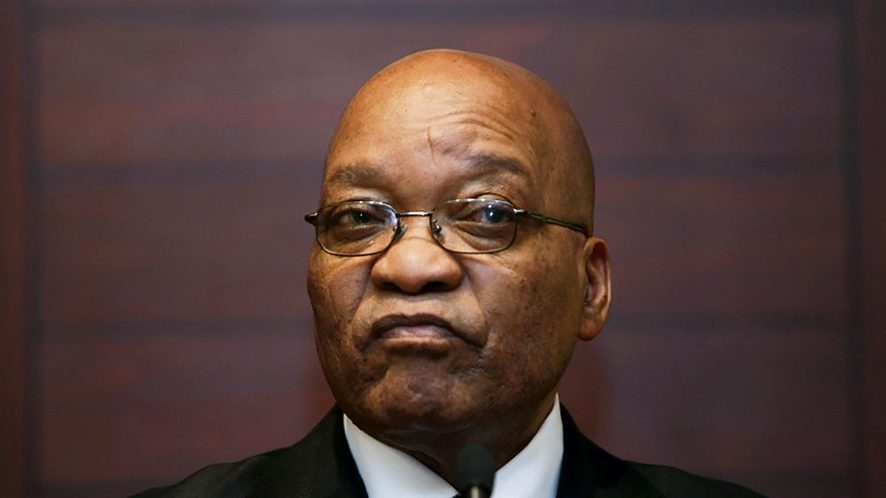The Supreme Court of Appeal (SCA) in Bloemfontein on Monday reserved judgment following arguments by the state and defence on former president Jacob Zuma’s medical parole.
Zuma’s lawyer advocate Dali Mpofu told presiding judges Nambitha Dambuza and Nolwazi Mabindla-Bowana that the former statesman suffers from a chronic illness that qualified him to be released on medical parole.
Mpofu said the findings by two doctors have indicated that Zuma is terminally ill.
Stressing the need to understand how former correctional services commissioner Arthur Fraser assessed the medical reports ahead of releasing Zuma on parole, the SCA justices said it is difficult to determine whether Fraser acted rationally, noting that Fraser had not disclosed that Zuma was suffering from a terminal illness.
The court questioned why the “terminal illness” is not categorically stated in the medical report. Justice Mabinda-Boqwana said there is no information about the actual illness Zuma is suffering from.
The court heard that Fraser was given no choice but to grant parole because correctional services did not have adequate facilities to treat Zuma’s illness. Mpofu argued that Zuma’s conditions required that he be under 24-hour medic care.
Said Mpofu: “It should be noted that according to SAMS [military officials] the condition of Mr Zuma required that he be under care of a medic on a 24-hour basis, a situation which was not possible at the facility, as the correctional centre can only accommodate inmates overnight. Therefore, the medic could not be allowed to spend 24 hours with Mr Zuma as the medic could not be accommodated in the correctional facility.”
Mpofu also argued that the application was brought to court in order to abuse the court to serve political interests of the DA and the Helen Suzman Foundation.
Although the plaintiffs argued that the medical parole advisory board did not recommend parole for the embattled former stateman, advocate Mariba Mphahlele said there is nothing improper about the decision to release Zuma even though the advisory board was against it.
Mphahlele argued that the advisory board’s report is not the deciding factor for the granting of medical parole, adding that the board’s report is supplementary to other reports submitted to the national commissioner.
He said the Correctional Services Act enables Frazer to act decisively and protect the rights of an inmate to adequate medical treatment.
Zuma’s legal team and the Department of Correctional Services were appealing the Pretoria High Court judgment that Zuma’s release on medical parole was unlawful and irrational. Fraser approved and released Zuma on medical parole less than two months after he was jailed.
He was serving a 15-month sentence for contempt of court after he failed to abide by the Constitutional Court order requiring him to appear at the Commission of Inquiry into Allegations of State Capture chaired by chief justice Raymond Zondo.
The Helen Suzman Foundation, the DA and AfriForum [the plaintiffs] contend that Zuma did not meet the prescribed criteria to be released.
Zuma’s sentence comes to an end in October and chances of him returning to jail are solely dependent on the SCA’s decision to rule whether the time he spent on medical parole should not count as part of his sentence as ordered by the high court.
Medical records
Zuma’s medical records have been in the spotlight for almost a year, with the former president colliding with a lead prosecutor in his arms deal case, advocate Billy Downer. He has accused Downer of leaking his medical records and laid criminal charges in October 2021.
In June, the Jacob Zuma Foundation welcomed the issuance of the prosequi certificate handed by the National Prosecuting Authority (NPA) and confirmed that Zuma is pursuing private prosecution of Downer.
However, the foundation said it was not impressed with the delays in granting the certificate.
Foundation spokesperson Mzwanele Manyi said at the time: “The foundation welcomes the ultimate issuance of the nolle prosequi certificate by the National Prosecuting Authority confirming their decision taken on 5 April 2022 not to prosecute Mr Billy Downer for the criminal contravention of section 41(6) read with section 41(7) of the NPA Act 32 of 1998.
“This decision was officially communicated to president Zuma on the 8th of April 2022, just a few days before the court hearing in PMB HC [Pietermaritzburg High Court], which took place on the 11th of April 2022.”
Manyi said the “malicious” timing of the decision to decline prosecution was the first sign of “shenanigans by the NPA aimed at creating an artificial innocence of Downer just before the commencement of the court proceedings”.
“It remains a mystery why the NPA took more than two months to furnish president Zuma with the one-sentence certificate after several demands and threats of litigation to compel national director of public prosecutions advocate [Shamila] Batohi to produce this certificate.”
He likened the delay to the abuse of office and resources and said Batohi knew that Zuma could not proceed with private prosecution without the certificate.
“We hope that the unnecessary delays were not an early indication of a planned NPA Stalingrad approach to these serious criminal charges that will again be blamed on president Zuma.”
The country has come to a stand still for the persecution of an 80 year old man by vengeful right wing groups including, DA, FUL, Afriforum and IRR.
The Foundation remains hopeful that justice will prevail to allow H.E Prez Zuma to spend time with his family and grandchildren. pic.twitter.com/aMKmVTn21n— JGZuma Foundation (Official) (@JGZ_Foundation) August 15, 2022
Also read: Jacob Zuma prepares to grill state advocate Billy Downer
To read more political news and views, click here.
Follow @SundayWorldZA on Twitter and @sundayworldza on Instagram, or like our Facebook Page, Sunday World, by clicking here for the latest breaking news in South Africa. To Subscribe to Sunday World, click here.




